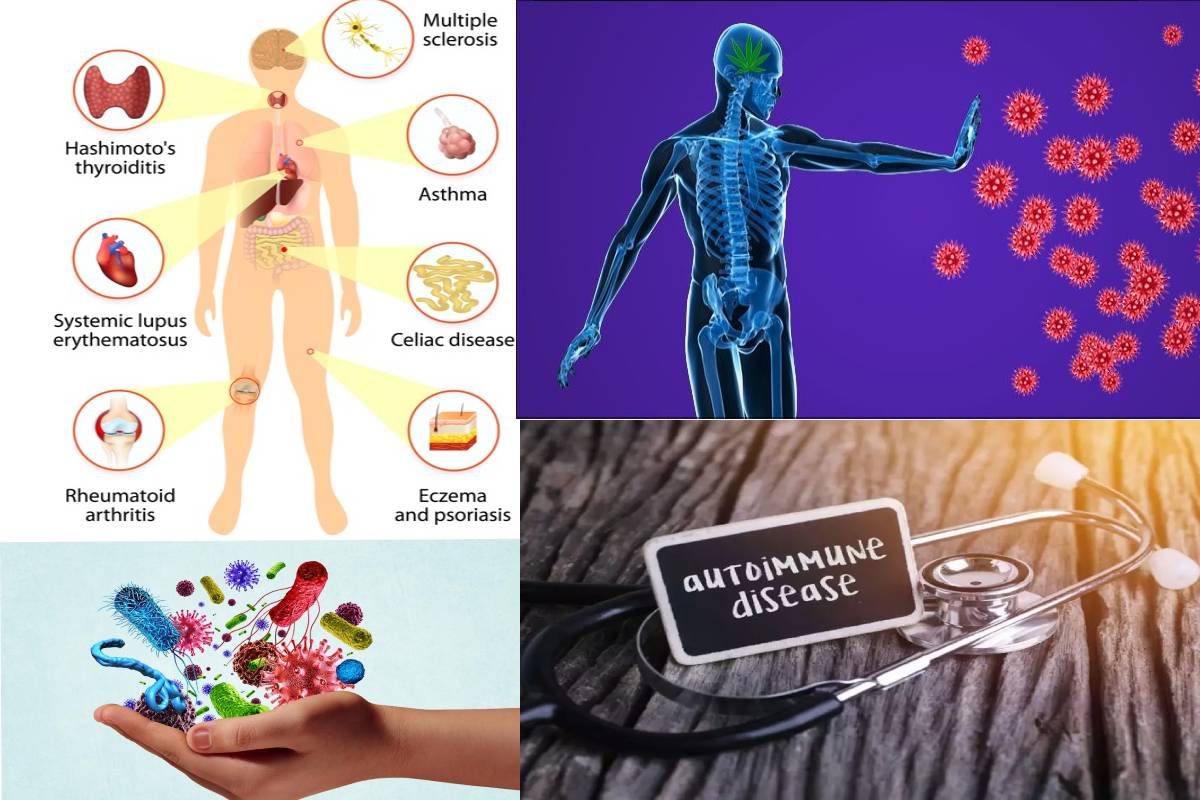Table of Contents
What are Autoimmune Diseases?
Autoimmune diseases are a state in which your immune system incorrectly attacks your body. The immune system usually guards against germs like bacteria and viruses.
When it senses these foreign invaders, it sends out an army of fighter cells to attack them. Usually, the immune system can tell the difference between foreign cells and your cells.
Some autoimmune diseases target only one organ. Type 1 diabetes damages the pancreas. Other conditions, like systemic lupus erythematosus (SLE), affect the whole body.
Symptoms of Autoimmune Diseases
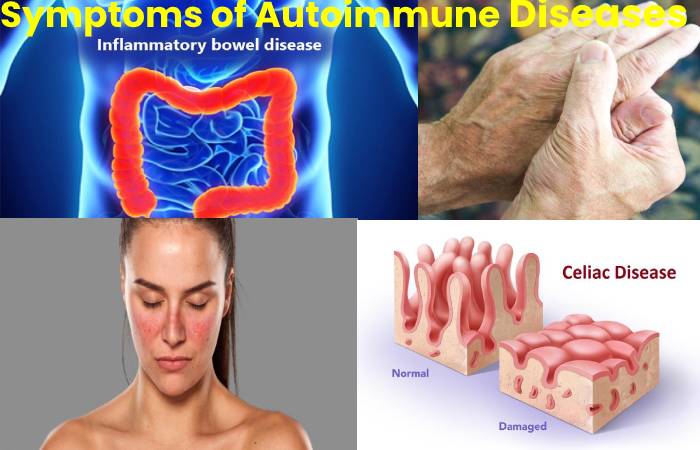
The main symptoms are inflammation (which can cause redness, warmth, pain, and swelling), fatigue, muscle aches, and fever. Depending on the disease that occurs, the symptoms that it manifests are:
Inflammatory Bowel Disease: There is usually abdominal pain and bloody diarrhea.
Type I Diabetes
Rheumatoid Arthritis: Its main symptoms are mild joint pain, stiffness, and fatigue. Also, the joints can be hot and painful. The most affected areas are the wrists, knees, fingers, and ankles.
Celiac Disease: It manifests with abdominal pain, diarrhea, constipation, weight loss, and fatigue.
Lupus: It can be challenging to diagnose because it manifests itself in the form of flare-ups. Its symptoms will depend on each case, but the muscle and joint pain and hair loss are the main ones.
Also, there is usually atypical coloration on the face, especially on the nose and cheeks.
What are the Causes of Autoimmune Diseases?
The causes of autoimmune diseases do not know, although they tend to run in families.
Also, some viruses, bacteria, and drugs may cause specific alterations that cause their appearance.
African American, Hispanic American, and North American Indian women are at higher risk of suffering.
What are the Medical Tests for Autoimmune Diseases?
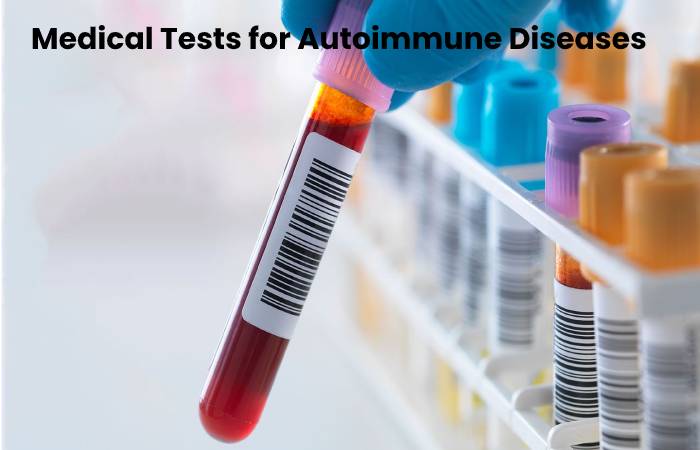
The first step determines an autoimmune disease is to take a complete medical history that includes family history, lifestyle habits, prescription drugs, and symptoms.
From there, depending on the autoimmune disease detected or suspected, some tests or others will carry out:
Inflammatory Bowel Disease: may require blood and stool tests, endoscopy, capsule endoscopy, ultrasound, radiological tests.
Type I Diabetes: The glycosylated hemoglobin (A1C) test, a random blood sugar test, or a fasting blood sugar test usually performed for diagnosis.
Rheumatoid Arthritis: a blood test and an X-ray examination of the most affected skeletal segments performed.
Celiac Disease: to diagnose this pathology, 4 tests commonly performed: serology, genetic tests, duodenal biopsy, and a gluten-free diet.
Lupus: The diagnosis of lupus is often tricky. It determines specialists based on the presence of several criteria that must meet simultaneously, such as malar rash, arthritis, blood or neurological disorders, mouth ulcers, or serositis, among others.
Treatments for Autoimmune Diseases
Different treatments are depending on the autoimmune disease to treat:
Inflammatory Bowel Disease: medication and diet.
Type I Diabetes: insulin must give daily for life.
Rheumatoid Arthritis: there’s no cure.
Celiac Disease: gluten should remove from the diet.
Lupus: taking medications to reduce inflammation and pain.
What are the Most Common Autoimmune Diseases?
According to the World Health Organization (WHO), autoimmune diseases affect between 3% and 7% of the world population.
Although many of them are rare diseases, the sum of all, they make autoimmune disorders has a high incidence in the world.
Next, we will see the most frequent diseases in which the immune system “signals” as a threat to our body cells.
1. Celiac Disease
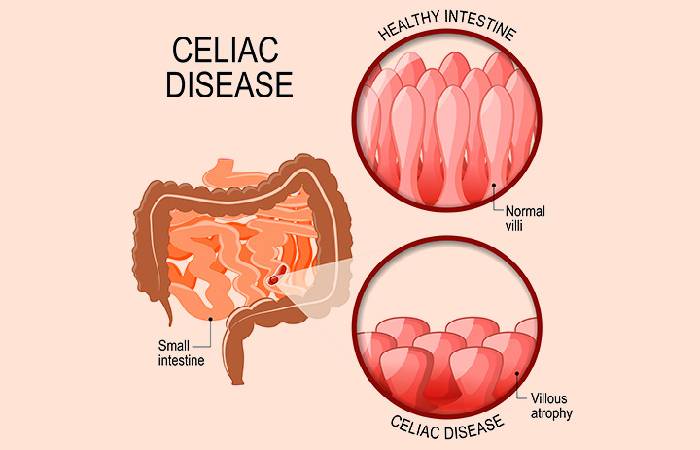
- Celiac disease is a disease characterized by a sensitivity reaction on the immune system’s part to gluten consumption, a protein found in wheat, barley, rye, and oats.
- Due to a genetic error, when it detects that gluten has consumed, the immune system begins to damage the intestinal villi, necessary to absorb nutrients. Because of this damage, people with celiac disease have health problems if they consume gluten.
- The most common symptoms after eating gluten-containing products are abdominal pain, constipation or diarrhea, nausea, vomiting, weight loss, decreased appetite, fatigue, bruising, low mood, hair loss, etc.
2. Type 1 Diabetes
- Diabetes, a disease characterized by excess sugar in the blood, can be two types: 1 and 2. This diabetes is the most common and is related to being overweight because of the diet’s sugar.
- Cells may become resistant to the action of insulin (the hormone that causes glucose to enter cells and not circulate freely in the blood), and diabetes develops.
- Type 1 diabetes is not related to an unhealthy lifestyle but causes a genetic error. That is, it is an autoimmune disease. In this case, the immune system begins to attack the pancreas’ insulin-producing cells, so that not enough of this hormone produce and sugar travels freely through the blood.
- Diabetes has the following symptoms: weight loss, great thirst, the appearance of sores that take time to heal, fatigue, weakness, recurrent infections, blurred vision. It can lead to serious health problems (cardiovascular and kidney diseases, depression, damage to the nerves, etc.), and can even cause death.
- Since it cannot cure, treatment consists of insulin injections when necessary and careful diet, including physical activity in the lifestyle.
3. Addison’s Disease
- Addison’s disease is an autoimmune disorder in which immune cells attack the adrenal glands, which are located in the kidneys, causing them to be unable to produce the necessary hormones.
- The hormones that stop produce properly are cortisol and aldosterone, which causes the person not to break down fats well or raise their blood pressure to optimal values, respectively.
- Specific symptoms accompany this: weight loss, decreased appetite, extreme fatigue, low blood pressure, abdominal pain, depression, hair loss, hypoglycemia (low blood sugar), darkening of the skin, irritability, etc.
- It cannot cure so that treatment will take replacements of the affected hormones for life.
4. Lupus
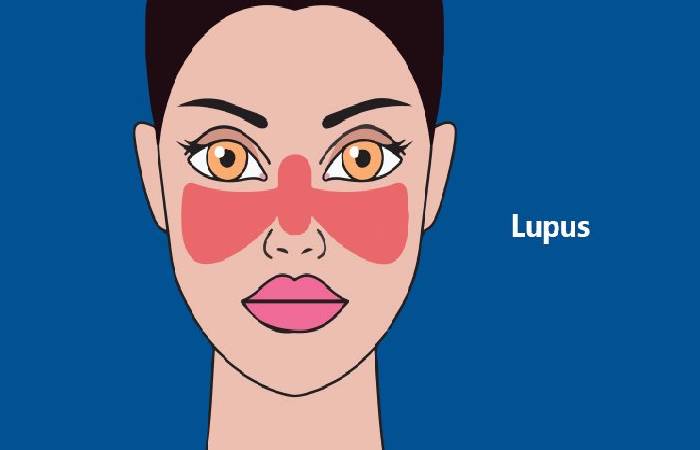
- Lupus is an autoimmune disease during immune cells begin to attack different healthy organs and tissues, including the skin, kidneys, brain, and joints, among others.
- The most common symptoms are: pain and swelling in the joints (especially fingers, hands, wrists, and knees), chest pain, unexplained fever, fatigue and weakness, mouth sores, sensitivity to sunlight, skin rashes, swollen lymph nodes, malaise, weight loss, decreased appetite.
- There will also be other symptoms depending on the region of the body affected. For example, if the damage is in the brain, there will be headaches, personality changes, vision problems. If it affects the heart: inflammation of the heart muscles, arrhythmias.
- There is no cure, and treatment will depend on the affected region of the body and its severity, although anti-inflammatories are the most commonly prescribed medications.
5. Rheumatoid Arthritis
- An autoimmune disease attacks the joints during the immune system cells, damaging them and causing excess synovial fluid. It causes the bones and cartilage to rub against each other always.
- The main symptom of arthritis is a pain in the joints (especially hands, feet, knees, wrists, elbows) and stiffness. There may be other symptoms: tiredness, fever, dry mouth, tingling in the extremities, etc.
- Anti-inflammatories are useful to reduce excess synovial fluid, thus reducing inflammation and alleviating symptoms.
6. Multiple Sclerosis
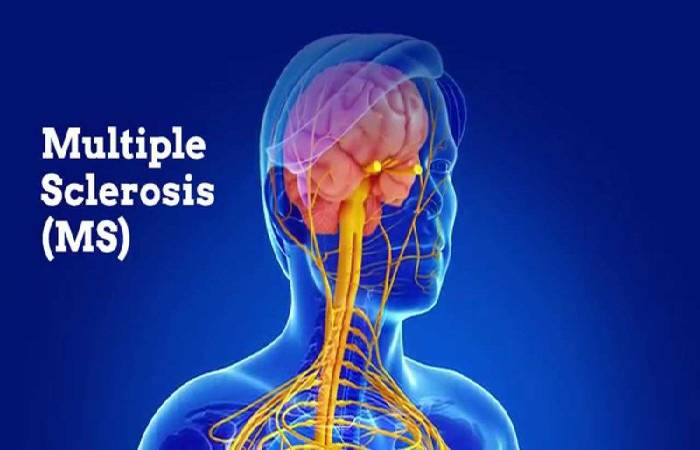
- An autoimmune disease begins to attack the neurons’ protective sheath during the immune system, leading to disabling neurodegeneration.
- It is a non-fatal disease (unlike amyotrophic lateral sclerosis) with symptoms that depend on the affected nerves. However, the most common is the loss of the ability to walk correctly. Muscle spasms, tremors, weakness, lack of balance, vision problems, facial pain, dizziness, etc. are also observed.
- Although there is no cure, current treatments help control symptoms and slow the disease’s progress as much as possible.
7. Guillain-Barré Syndrome
- Guillain-Barré syndrome is an autoimmune disease in which the cells of the immune system also attack the nerves. It usually causes body weakness and tingling in the extremities, although it progresses rapidly, leading to paralysis of vital organs, which is why it is fatal.
- For this reason, people who begin to have typical symptoms should admit as early as possible since the treatment will allow them to overcome the disease.
- Although it can cure, it will leave some sequelae: weakness, fatigue, and limbs’ numbness.
8. Myasthenia Gravis
- Myasthenia gravis is an autoimmune disease in which the immune system cells prevent the nerves from transmitting information to the muscles.
- It does not affect the muscles controlled by the autonomic nervous system. That is, there are no problems with the heart or the digestive tract. The problem is in the muscles that move voluntarily, those that are under our control.
- The main symptom is muscle weakness, which translates into problems breathing, speaking, walking, lifting objects, chewing and swallowing, etc. Therefore, fatigue, vision problems, facial paralysis, keeping the head down, among others, are common.
9. Dermatomyositis
- Dermatomyositis is a skin disease that, although it can also be due to a viral infection, usually originates in an autoimmune disorder—cells of the immune system attack skin cells, causing inflammation rashes.
- The most common symptoms are red skin rash, redness of the upper eyelids, muscle weakness, shortness of breath, and trouble swallowing.
- Treatment consists of administering corticosteroids, drugs that work as anti-inflammatories, and immunosuppressants, reducing the immune system’s activity so that it does not cause so much damage.
10. Thyroiditis
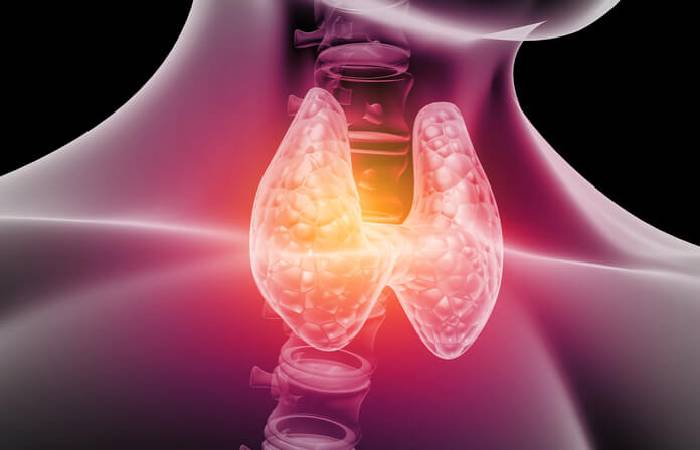
- An autoimmune disorder attacks the thyroid gland during the immune system cells, causing impairment in hormones production, leading to hypothyroidism.
- There are not sufficient thyroid hormones in the body. And the metabolism cannot adequately control, leading to several symptoms: weight gain, slow heart rate, increased blood cholesterol, drowsiness, hoarseness, depression, pain in the joints, constipation, swelling of the face, weakness, and fatigue, dry skin, etc.
- Despite the absence of a cure, treatments based on drugs that replace the affected hormones are often useful to reduce the symptoms.
Conclusion
Autoimmune diseases are pathologies of great clinical complexity, difficult diagnosis, and treatment complex, in which etiology remains unknowns despite the many advances made in recent years.
There is no cure for this disease. However, medications can help improve communication between nerves and muscles, reducing symptoms, and leading a healthy lifestyle.

